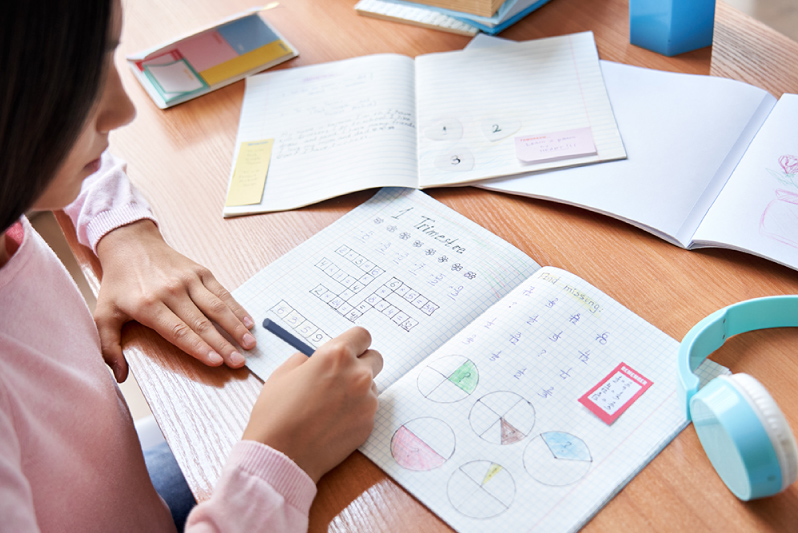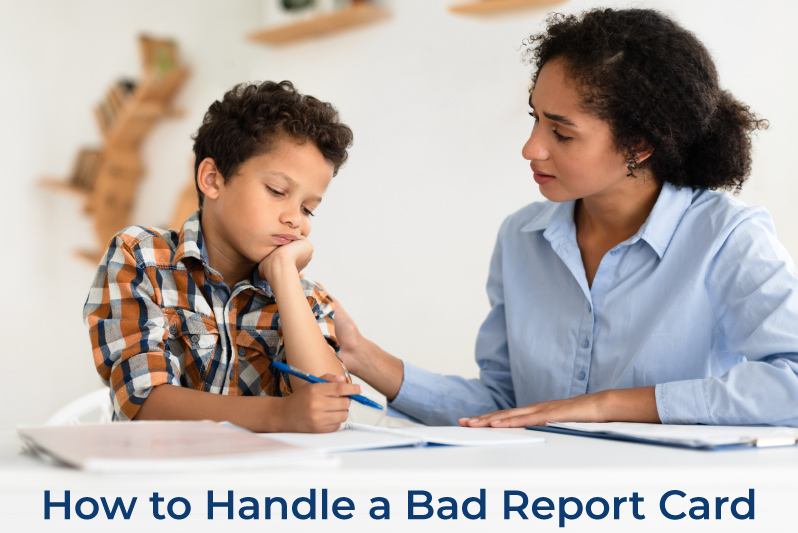Receiving a bad report card can be a source of stress and worry for both students and their parents. This article will guide you through the steps to handle a bad report card effectively. From understanding the significance of a report card to working collaboratively with teachers and school staff, we will equip you with valuable strategies to turn this setback into an opportunity for growth. Additionally, we will explore how Lindamood-Bell can provide the learning support your child needs to overcome academic challenges. Let’s get started!
Understanding the Importance of a Report Card

Report cards play a crucial role in a student’s academic journey. They offer valuable insights into a child’s progress, strengths, and areas that need improvement. Understanding the importance of a report card can help parents and educators support students effectively.
One of the primary reasons report cards matter is that they serve as an evaluation of a student’s performance. They reflect the student’s performance in the classroom, the effectiveness of teaching methods, and the overall learning environment. Grades on a report card can provide feedback to parents and educators on how well a student grasps the material and meets academic expectations.
Grades on a report card can indicate various aspects of a student’s academic abilities. They may go beyond just numbers or letters; they may offer detailed information about a student’s strengths and weaknesses in different subjects. For example, high grades in math may suggest strong analytical and problem-solving skills, while lower grades in English may indicate a need for improvement in reading or writing comprehension.
In some school grades, report cards may significantly impact students’ future opportunities. In the later years of school, they are often used as a benchmark for college admissions, scholarship applications, and future employment. Good grades can open doors to prestigious universities and scholarships, while failing grades may limit options and opportunities. Therefore, promptly addressing any challenges highlighted in a report card is crucial and can benefit students.
Strategies for Reacting Positively to a Bad Report Card

Receiving a bad report card can be disappointing and overwhelming for both children and parents. However, reacting positively and supporting your child during this time is important. Here are some strategies to help you handle a bad report card:
Keeping emotions in check: Feeling frustrated or upset when your child’s grades are not what you expected is natural. However, it’s crucial to keep your emotions in check and avoid reacting in anger or disappointment. Remember, your child needs your support and understanding, not criticism.
Supporting your child emotionally: Instead of focusing solely on the grades, take the time to understand the underlying reasons behind the poor performance. Show empathy and let your child know that you are there to help them overcome any challenges they may be facing. Offer words of encouragement and reassure them that they are capable of improving.
Encouraging open communication: Create a safe and non-judgmental environment where your child feels comfortable discussing their academic struggles. Encourage them to express their feelings and share their concerns. You can better understand their needs and provide the necessary support by fostering open communication.
Remember, a bad report card does not define your child’s worth or potential. It is an opportunity for growth and learning. By reacting positively and offering support, you can help your child develop resilience and the motivation to improve. If you need additional guidance or assistance, consider exploring the educational programs and resources Lindamood-Bell offers.
Identifying the Root Causes of Poor Grades

When a student receives a bad report card, it’s essential to dig deeper and identify the underlying reasons for their poor grades. By understanding the root causes, parents and educators can provide the necessary support and interventions to help the student succeed.
One possible reason for poor grades is underlying learning difficulties. Some students may struggle with specific areas of learning, such as reading, writing, or math. Recognizing these difficulties is crucial, as it allows for targeted interventions and specialized instruction to address the student’s unique needs.
A poor report card can signal that your child needs extra support in developing the foundational skills for learning and comprehension. At Lindamood-Bell, we understand that every child is unique and may require different approaches to learning.
Often, it is necessary to seek a professional learning assessment to understand the root causes of poor grades. Lindamood-Bell can provide a comprehensive evaluation of a student’s learning abilities. Through a Learning Ability Evaluation, Lindamood-Bell can identify the student’s learning strengths and challenges, helping parents and educators develop targeted strategies for improvement.
Collaborating with Teachers

Remember, handling a bad report card is not a solitary task. Collaborating with teachers, school staff, and outside professional experts can create a strong support system for your child’s academic growth and help them overcome challenges.
If a learning assessment identifies that your child struggles with areas of learning that impact their classroom performance, be prepared to share these findings with your child’s teacher. Or arrange for the professional who administered the assessment to discuss the results with the teacher. Be prepared to ask specific questions, share your concerns, and ask the teacher for their insights.
Find Learning Support at Lindamood-Bell

Our comprehensive learning evaluation provides insight into your child’s strengths and weaknesses. Our team of experts will assess your child’s cognitive and academic abilities, identifying specific areas that need improvement.
Lindamood-Bell instruction is designed to help students of all types who are struggling in school. Whether your child is struggling with reading, comprehension, or math, our evidence-based programs can make a difference.
Hear from a family about how Lindamood-Bell instruction turned around their child’s school experience, from learning struggles to success in college:
Our highly trained instructors use research-based techniques to develop the underlying skills necessary for learning success. Through individualized instruction, we address your child’s specific needs and help them reach their full potential.
At Lindamood-Bell, we are committed to providing the highest quality learning support. Our programs are proven to improve learning outcomes and help students regain their confidence in the classroom. Contact us to learn more or call 800-300-1818.






